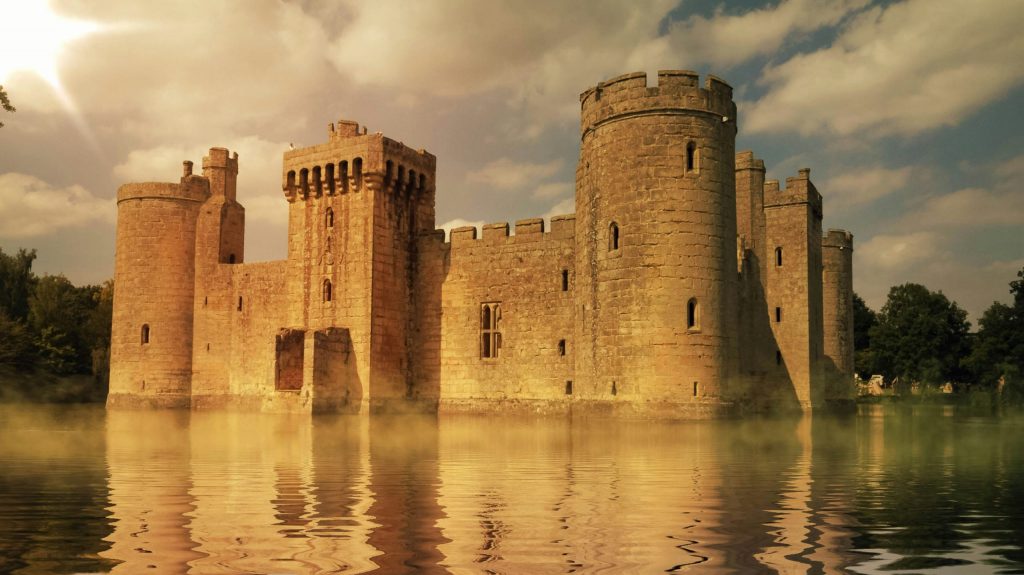Recently I’ve been reading The Message, a paraphrase of the New Testament produced by the American theologian and pastor, Eugene Peterson. Peterson spent a large chunk of his life leading a church in Bel Air, Maryland and The Message was born out of his attempts to get his congregation to engage with the Word of God in a vernacular they themselves could understand. I like Peterson’s writings a lot; his memoir, The Pastor is well worth your time, as is his book on discipleship, A Long Obedience in the Same Direction. I enjoy reading the Bible (well, you would hope that someone in my line of work would enjoy reading the Bible) and try to read it in as many translations as I can find. The Message has its moments: the rendering of the fruit of the Spirit in Galatians 5 being one that easily comes to mind. For me, though, one of its highlights are the introductions Peterson gives to the books of the New Testament he’s paraphrased. One of my favourites is his preface to Paul’s letters to the Thessalonians. He writes:
The way we understand the future affects the present. It gives depth and colour to nearly every action and thought throughout the day. If we don’t think about the future, then we have no future. It turns out that much emotional and mental illness and most suicides occur among men and women who feel – you guessed it – like they have no future.
Later on, Peterson adds:
When you have a future as Christians do, that future has a practical effect on the present. That effect is hope. For if the future is dominated by the coming again of Jesus, there is little room left for anxiety and fear. Hope becomes the clarifying force in our lives…
I think that Peterson has hit upon something foundational to the human experience here; namely, that mankind cannot live for too long without hope. Hope permeates our thinking far more than we realise; that’s because we think about the future far more than we realise. Many of us are planning ahead for holidays or retirement or school exams or for that most British of future events – the rainy day. Children and adults alike excitedly look forward to big events like Christmas or birthdays or anniversaries. Likewise, others are currently concerned about their bank balance, the rising costs of food and energy, the increase in interest rates. All of those factors affect how they then think about the future. Similarly, others will be waiting for news from their doctor about their health or a letter from their solicitor about divorce proceedings and custody battles. These situations can often cut right across any hopes we had for a peaceful and prosperous future. Before we go any further, it might be worth stopping for a moment and asking ourselves, what are we currently thinking about? And what are we currently expecting to happen to us in the future? Are our expectations about the future saturated with hope or seeped in worry? It’s worth doing the exercise, no matter how painful the process may be.
What, then, is hope? Well there’s a great deal of difference between worldly hope and biblical hope. We have to recognise that the world around us talks a great deal about hope. All successful political campaigns are built around hope – whether it was New Labour back in 1997 with their theme tune, “Things Can Only Get Better”, or Barack Obama in 2008 publishing a book called The Audacity of Hope during his run for President of the United States. Whatever way someone voted in referendums in recent years as significant as those over Scottish independence or the United Kingdom’s membership of the European Union, they will have done so with the hope that their choice would lead to a better future for themselves and their country. But worldly hope is no more than a wish. Worldly hope asks, will my favourite football team ever win the league again? I hope so. I hope so but I can’t say for certain. Will your family friend make it through the operation they’ve been dreading? You hope so. You hope so but can’t say for certain. Worldly hope is anxious for the best outcome but can’t guarantee it. In the world it’s always possible your hopes will come to nothing. Not so in the kingdom of God. Biblical hope is very different indeed. When we examine what the Scriptures have to say about hope we discover that biblical hope is the confident expectation of future good. No less an authority than my own father, Roger Aubrey (author of, among others, The Little Book of Hope), said this:
Bible hope is an absolute certainty; it is the confident, unswerving expectation of good, that what we expect to happen will surely happen. Our hope in God involves an unswerving expectation, an unshakeable confidence, an unswerving certainty, and a patient trust.
You’re probably familiar with the promise that God made to his people exiled in Babylon centuries before the coming of Christ. He inspired the prophet Jeremiah to write them a letter and it said:
“For I know the plans I have for you,” declares the Lord, “plans to prosper you and not to harm you, plans to give you hope and a future.” (Jeremiah 29:11)
God knows the plans he has for us, isn’t that reassuring? And those plans are to prosper us, not to harm us. Wonderful! And they involved giving us hope and a future. Hope is to do with your future, not your present or your past.
A wise and inspiring friend of mine, a great prophet and Bible teacher I’ve known for most of my life, once said, “Hope is Paul’s word for eschatology.” It’s a simple statement that has stuck with me ever since I’ve heard it; it’s worth taking a moment to unpack it. Eschatology is the fancy theological word we use to describe the study of the end times. It’s concerned with examining the Scriptures and asking, what will happen before Jesus returns, when he returns and after he returns. It’s easy to get lost when we embark on such study, easy to get deceived, downcast or damaged. There’s plenty of money to be made in telling people when the world is going to end and how. (I’ve kept a book in my office for the last ten years that predicted the world was going to end in 2012. Ouch.) But this neat little phrase from my friend helps us navigate these potentially choppy waters with calm. In fact, you could say we navigate them with hope. Because for Paul, the author of great swathes of the New Testament and arguably the most influential figure in Christianity after the Lord Jesus Christ, the future was characterised by hope. A confident expectation of future good. A hope of glory, he said to the Colossians. A hope that neither disappoints nor puts us to shame. Bob Marley and the Wailers once sang, “everything’s gonna be alright.” Paul tells the Christian that, because of our hope in God, it will be.
There’s a verse in his letter to the church in Rome that encapsulates so much of what I’m trying to say in this article. I’d love to tell you that I discovered it through diligent reading of the Scriptures, or that it came to me in a vision in the night worthy of Acts of the Apostles. But in fact, no matter how many times I may have read Romans before, it first struck me when I heard my wife singing it, night after night, to our first child as she put her to bed. It says this:
May the God of hope fill you with all joy and peace as you trust in him so that you may overflow with hope by the power of the Holy Spirit. (Romans 15:13)
There’s a lot to unpack in that verse! A lifetime’s worth you might say. And it’s not the only verse like it in Paul’s writings! But let’s think about it for a moment. First, this tells us that hope is from God. God is the God of hope. The Devil has no hope to offer you; this world has faint hope, tainted hope, temporary hope. But God is the God of hope. It’s part of his nature to be hopeful and to give hope. God is a hopeful person to spend time with; your walk with God can be and should be characterised by hope. Don’t forget what he said to the exiles living in Babylon.
So God is the God of hope. And he wants to fill you with qualities in line with that hope. What qualities? Now these are good ones, really good ones if you ask me. Qualities that are linked to life in his kingdom. What are they? Joy and peace. That’s right: God is willing and able to fill you with joy and peace because he is the God of hope. And what end does this serve? Well, Paul says that in filling you with joy and peace he is able to cause you to overflow with hope by the power of the Holy Spirit. You might say that hope is a combination of joy and peace: when God fills you with joy and peace it causes you to overflow with hope. You become increasingly serene, increasingly happy, increasingly powerful, positive and influential. You expect good things to come your way; like David you say, I believe that I will see the goodness of the Lord in the land of the living (see Psalm 27:13). Yes! That’s you.
But Paul does say there’s a part we have to play. (And remember, in the kingdom of God, everyone gets to play.) Our part, Paul says, is to trust in God. May the God of hope fill you with all joy and peace as you trust in him. Here’s some good news for us all: God is the most reliable, most trustworthy person in the whole universe. He’s never let anyone down and he’s not planning on starting with you! It’s impossible for him to lie and he’s the same yesterday, today and forever it says in Hebrews.
Trust is slowly eroding in the society around us. We trust people in powerful public positions less and less. Politicians are treated with increased skepticism and cynicism. Those in authority can often be greeted with a subtle air of distrust by those they claim to lead. It’s something that can easily affect us in the church if we allow it to go on unchecked. But Jesus Christ, the head of the church, is trustworthy. He’s faithful, reliable. You can hope in him.
So the best thing for any of us to do is to choose to trust in God. Trust is something you give, not something that others demand. (Have you noticed that in most Hollywood movies, when a character says, “you’ll just have to trust me” that’s usually a sign that you shouldn’t?) Putting our trust, our faith, in God is the best thing we can do with it. It’s better than trusting in ourselves or simply in humanity at large. We recently received a prophetic word at All Nations that simply invited us to hope in God again, to trust in him again, to believe that, no matter how long we may have been waiting for a promise to be fulfilled, it could happen that very day. Today is still a good day to trust God; today is still a good day to hope in him. Let your mind be led by God, through his Spirit and his Word, to develop thoughts of hope and faith concerning the glorious future he has for you. And may he filled you with joy and peace in overflowing qualities as you trust in him.





